our Ambition
We are constantly reducing our ecological footprint

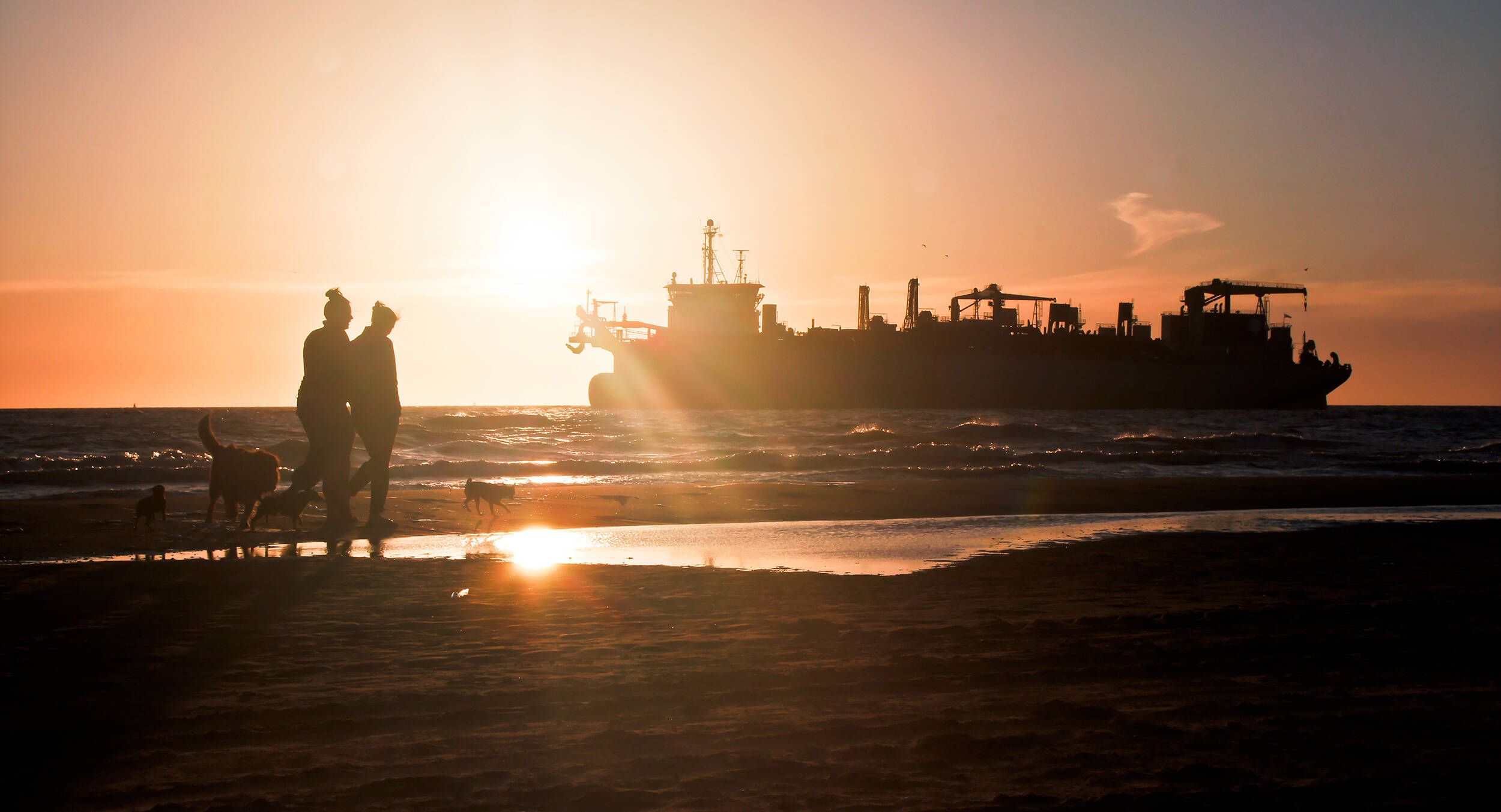
Michel Deruyck, Head of Energy Department
"The dredging industry produces only 0.1% of the total emission of global shipping traffic. Nevertheless, we are strongly committed to this issue."
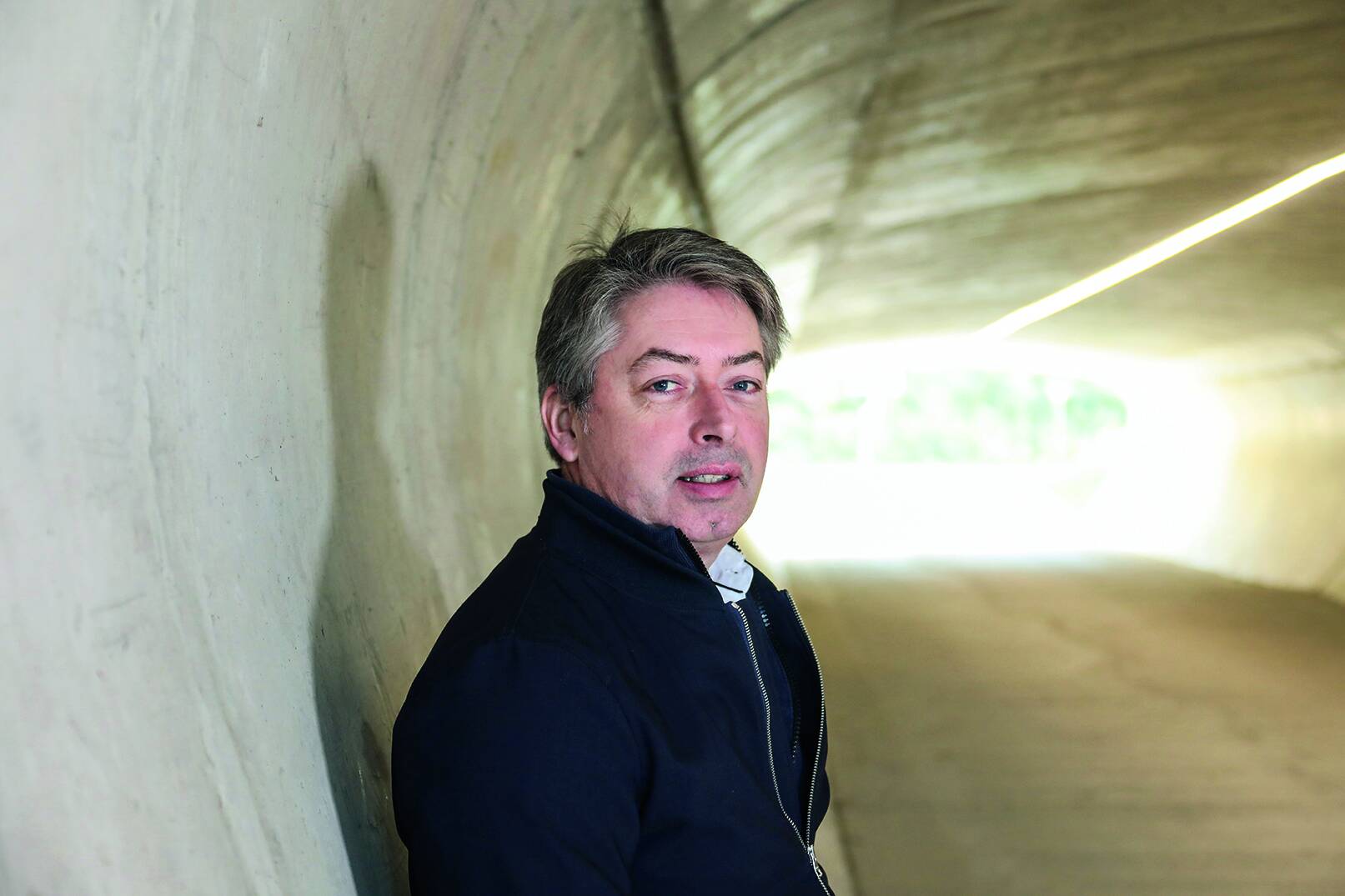
ULEv vessels: cleaner air, fewer emissions
Air pollution is one of the major hazards to public health. Marine works mainly take place along the coast and in the vicinity of ports and densely populated areas. It is therefore important to limit the emissions of our ships carrying out these works as much as possible.
"The dredging industry produces only 0.1% of the total emission of global shipping traffic. Nevertheless, we are strongly committed to this issue and do everything we can to safeguard the environment even more”, says Michel Deruyck, Head of Energy Department.
In order to reduce the emission of pollutants, Jan De Nul Group has been using Ultra Low Emission vessels (ULEv) since 2019. These vessels are equipped with a catalyst that renders nitrogen oxides harmless and with a catalytic soot filter blocking the finest particles.
"It is highly fascinating to investigate what factors can stimulate flat oyster farming"
United Project: first tests for erosion protection
Jan De Nul is part of a consortium of knowledge institutions and private companies that is investigating how to use the space of wind farms in the Belgian North Sea, in the most optimal and sustainable way (European project ‘United’). Specifically, we are participating in a research project focussing on nature restoration and aquaculture.
"Our task is to develop and install stone baskets at sea. We also supply the stones to fill the baskets and examine which type of stone is most favourable for oyster farming. A fascinating activity”, says Simon Petit of the Engineer Marine Environmental Department. "Thanks to our insights, we might one day be able to eat oysters grown on our wind farm. The knowledge that we gain from such a research project can be integrated into our projects."
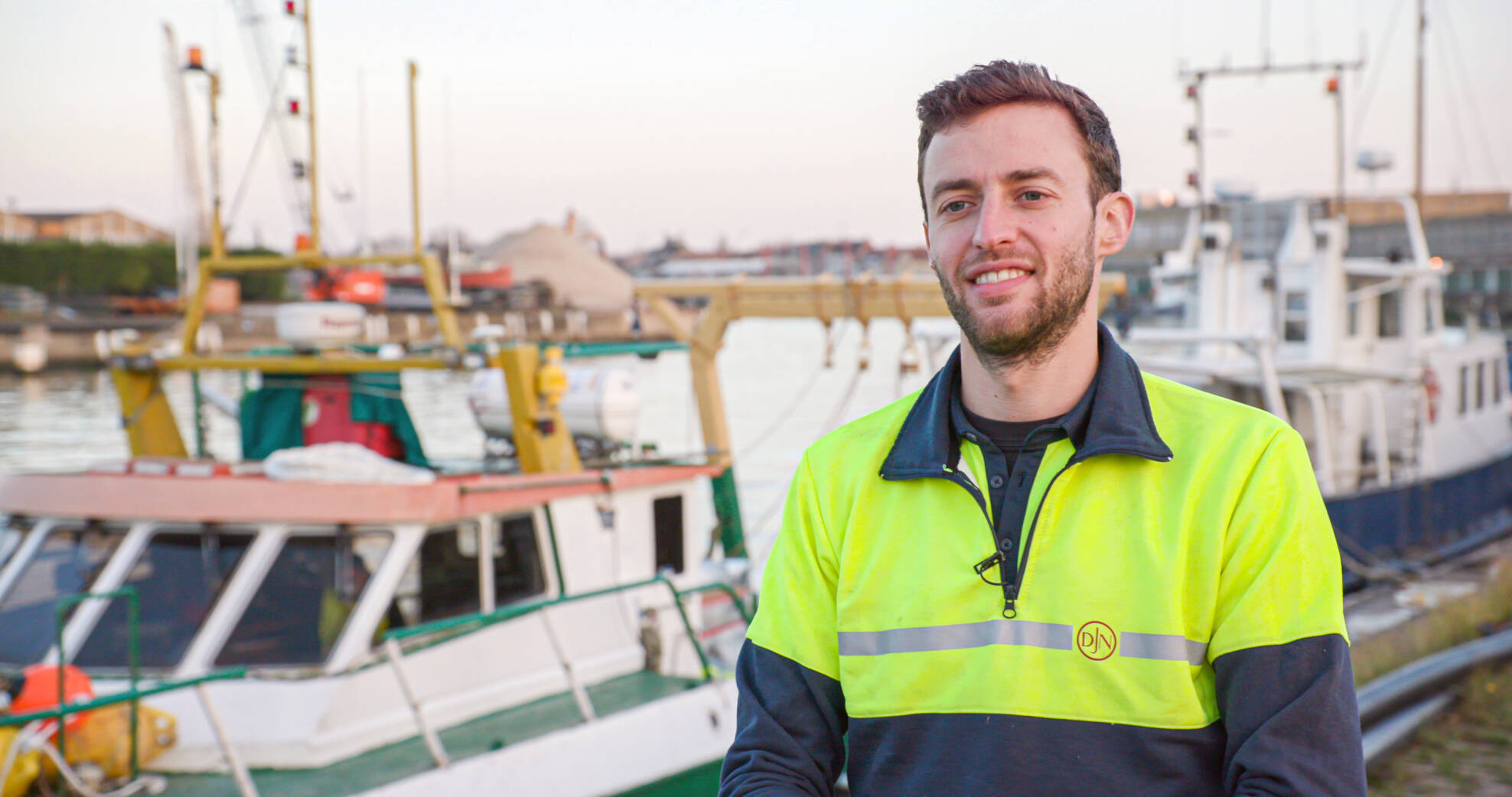
Tom Van Vooren,
R&D engineer
"The Nul-O-Plastic is flexible and will also be deployed on other contaminated sites."
Nul-O-Plastic tackles historical pollution
Jan De Nul stimulates its employees to think innovatively and divergently. This is how the Nul-O-Plastic was born: a compact, flexible machine – a kind of hoover – that we use to clean up microplastics in a nature reserve in the port of Antwerp.
"When developing this machine, we took into account the vulnerability of a nature area. Thanks to its compactness and caterpillar tracks, the Nul-O-Plastic exerts little pressure on the ground, minimising the risk of causing damage”, explains R&D engineer Tom Van Vooren. "Port of Antwerp, ANB and Natuurpunt are already enthusiastic and are considering the possibility of using this machine for cleaning other sites in the area."
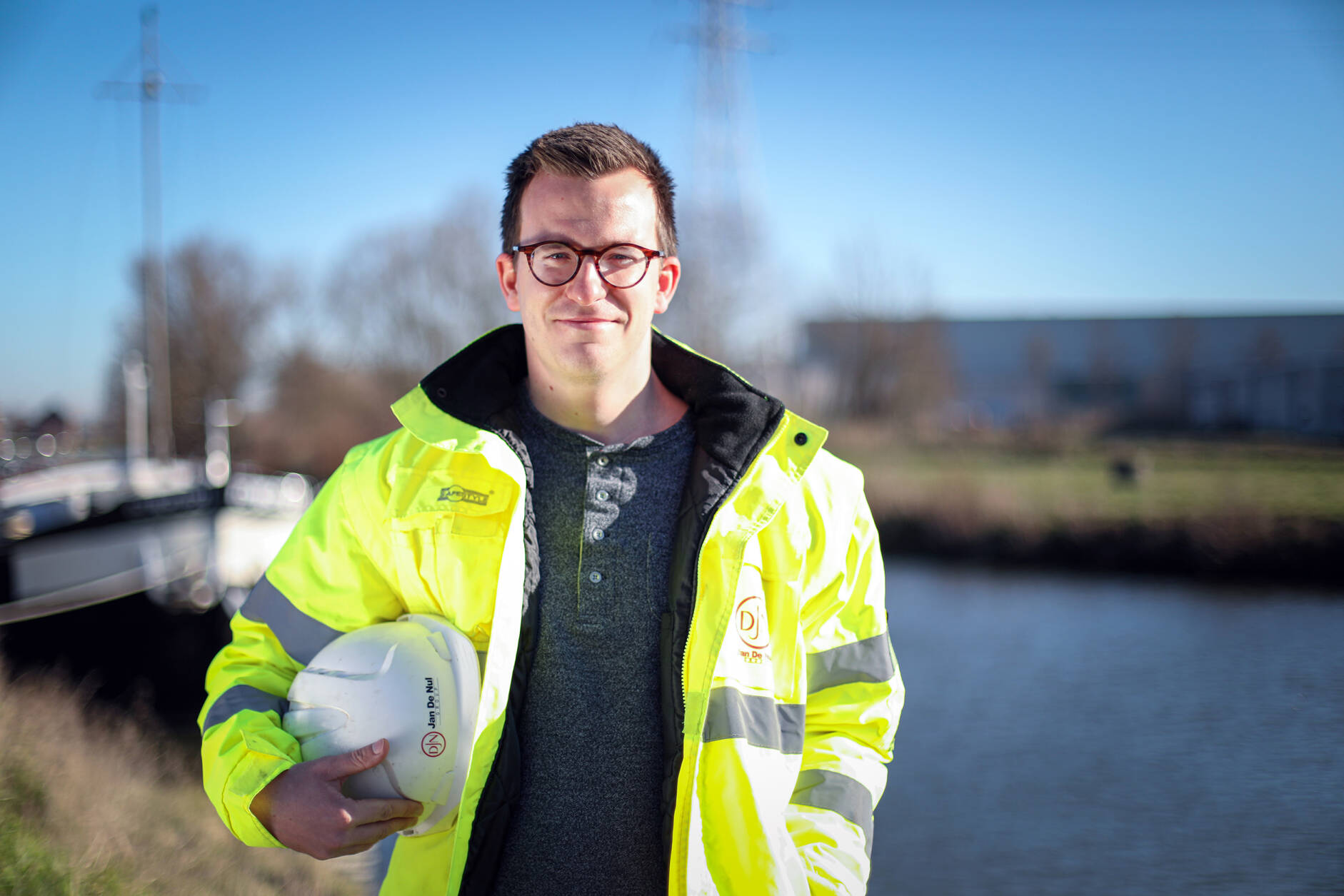
Bart Callens, PPS Manager
“By considering the whole lifecycle of a project, we can make circular design choices."
Innovating with circular building
By signing the Green Deal Circular Building, we emphasise our climate commitment, not only in words, but also in concrete actions. In this innovative learning network, we share practical experiences with our fellow competitors. Central to the re-use of maximum high-quality recycling materials is the focus on change-orientated construction methods, the optimum use of space with a view to extending the life span of buildings and materials.
“By considering the whole lifecycle of a project, we can make circular design choices", says Bart Callens, PPS Manager. "For example, we developed a circular design process for the tender for the new R4 ring road around Ghent. We want to minimise the energy consumption in this project and use sustainable materials."

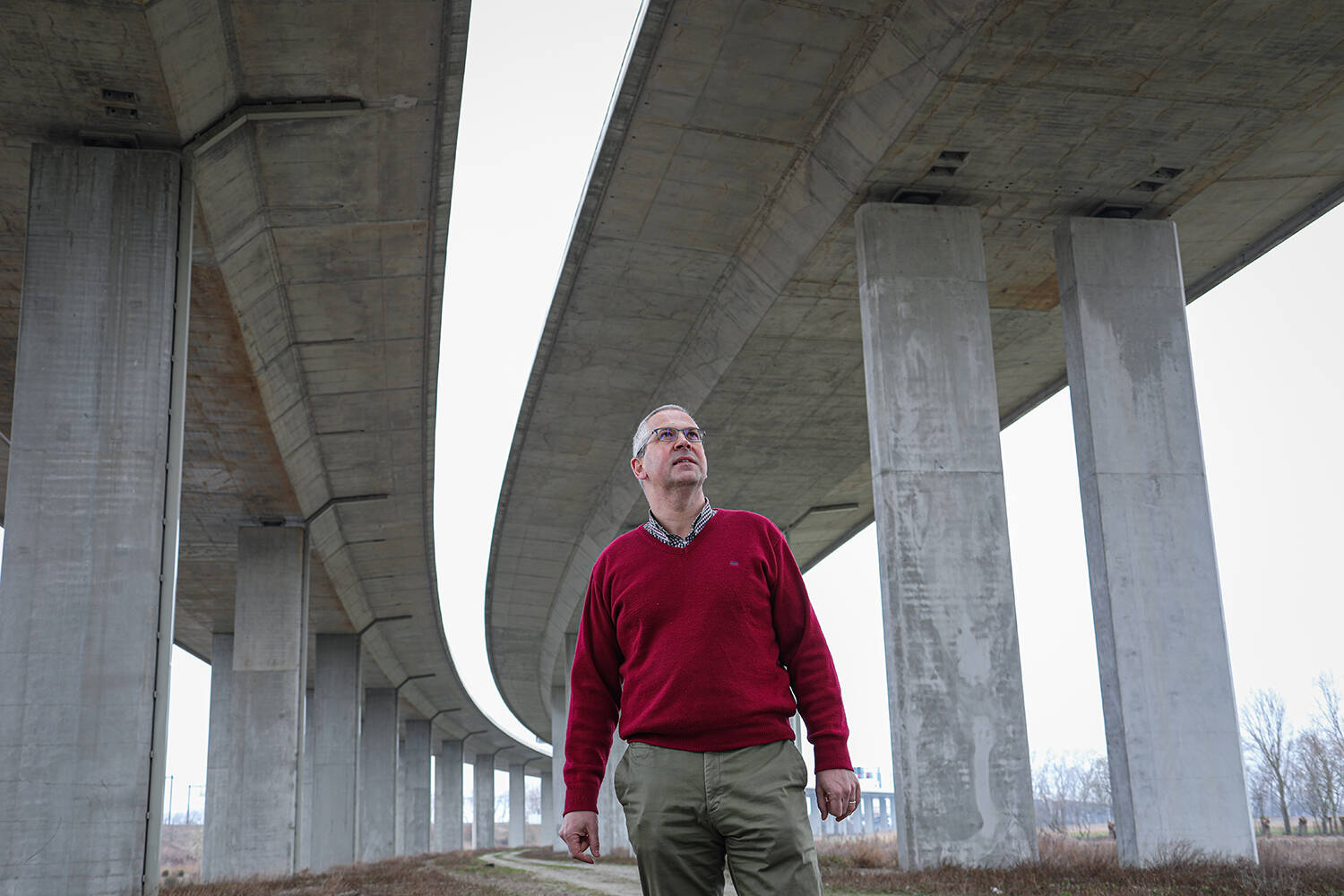
Our Marine Environmental Department (MARED) monitors and controls all environmental aspects of Jan De Nul projects. Using innovative research, we look for solutions to preserve and, where possible, improve the natural environment around our projects.
Our constructions take the place of existing ecosystems and neighbouring ecosystems may also be affected during and after work activities. Our work therefore has an impact on the wider environment: the quality of the water, ecosystems and biodiversity.
Natural resources and ecosystems.
Datasheet Focus Area Natural Resources and Ecosystems
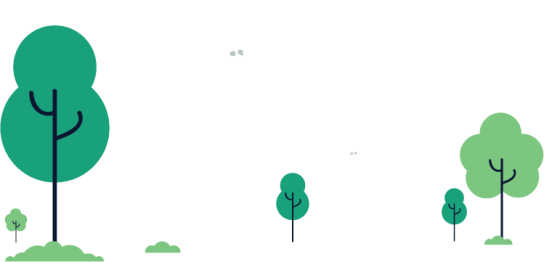
Circularity and waste management.
Treating contaminated soils and sediments, so that a large part can be reused, is the core activity of our Environment Division. In this way, the team pays a substantial contribution to the circular economy. Jan De Nul Group wants to increasingly explore and implement this circular concept throughout the entire company, thereby focussing on circular improvements in the management of sediments, soil, water and waste.
In addition, we put maximum effort into reducing the waste streams, both in our offices, on the sites and on board of our vessels. Our waste policy focuses on waste prevention, maximum reuse of waste, recovery of raw materials and recycling.
We pay special attention to plastic waste in our oceans, which represents a major threat to the rich marine biodiversity. We are investing in technological solutions to tackle specific forms of plastic pollution. In addition, we make all our employees aware of the problem of “plastic soup”. Worldwide, we organise beach clean-up actions together with local communities.
Datasheet Focus Area Circularity and Waste Management
Energy, emissions and climate.
Climate change is one of the biggest threats to our planet and society. Jan De Nul Group is committed to reducing its energy consumption and greenhouse gas emissions and to improving air quality. Step by step, we translate our advanced energy management into concrete initiatives.
For example, in all our Benelux offices and workshops we use 100% green electricity from a local source. We generate our own green energy using solar panels on the roofs of our company buildings and wind turbines on our Belgian sites.
The challenges in the field of energy, emissions and climate are a motor for innovation at Jan De Nul. Our engineers are always looking for innovative interventions to reduce our ecological footprint.
Datasheet Focus Area Energy, Emissions and Climate


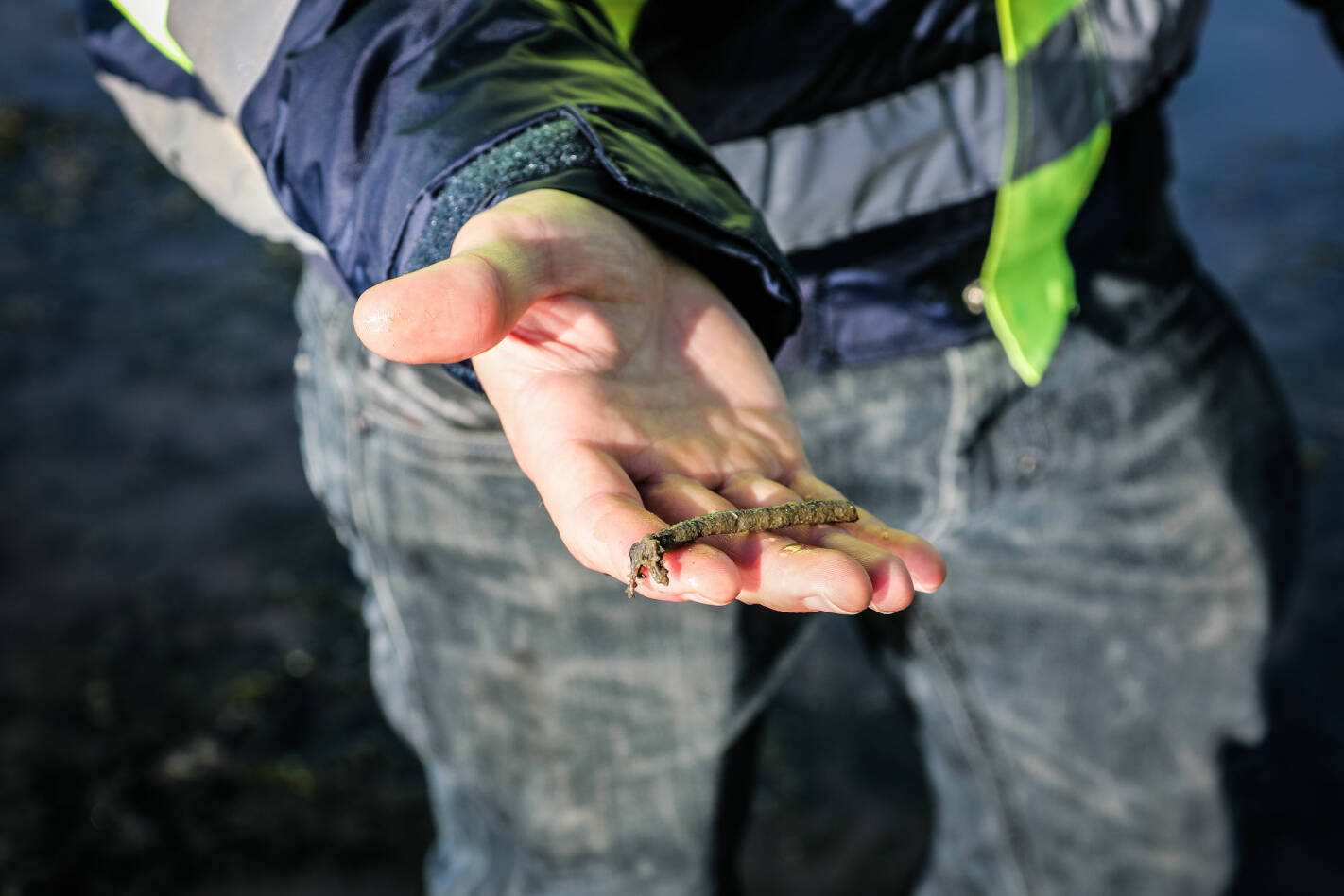
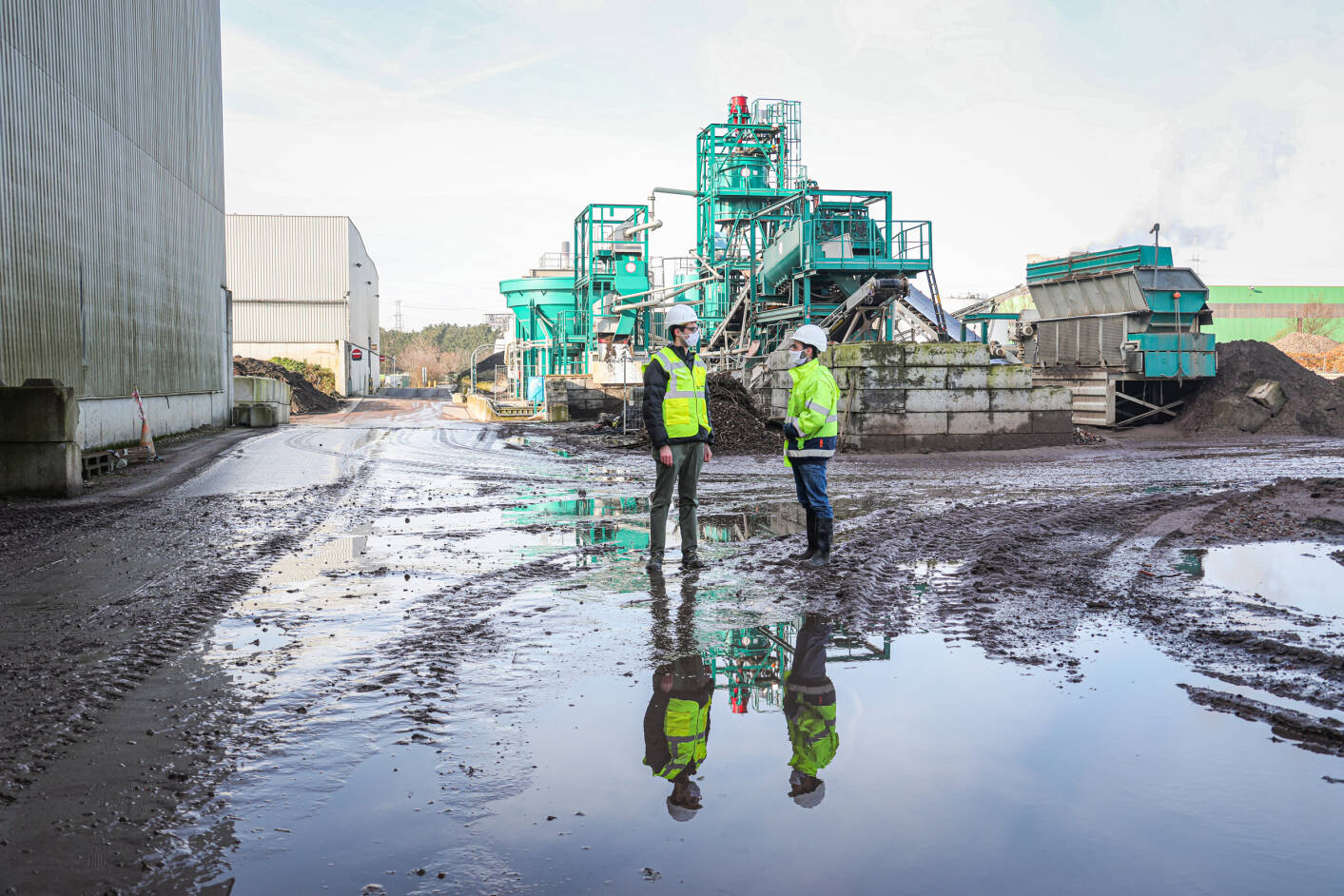
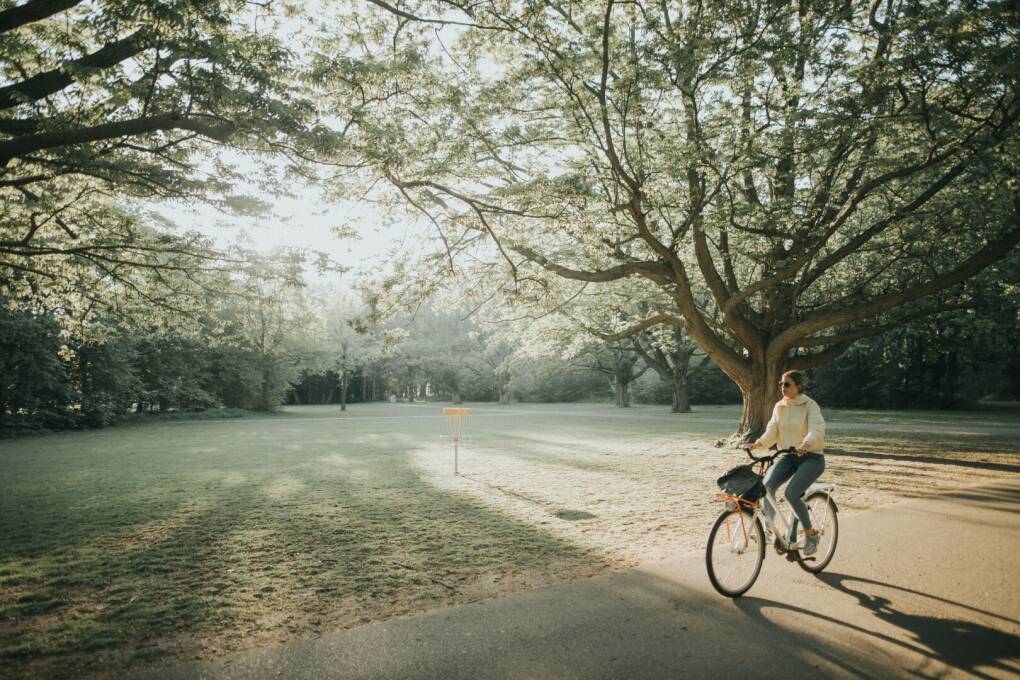
The health of our planet is under pressure. That is why we aim to minimise our environmental impact in all our activities. We are driven by respect for nature, our living environment and public health.
planet
Focus areas and achievements
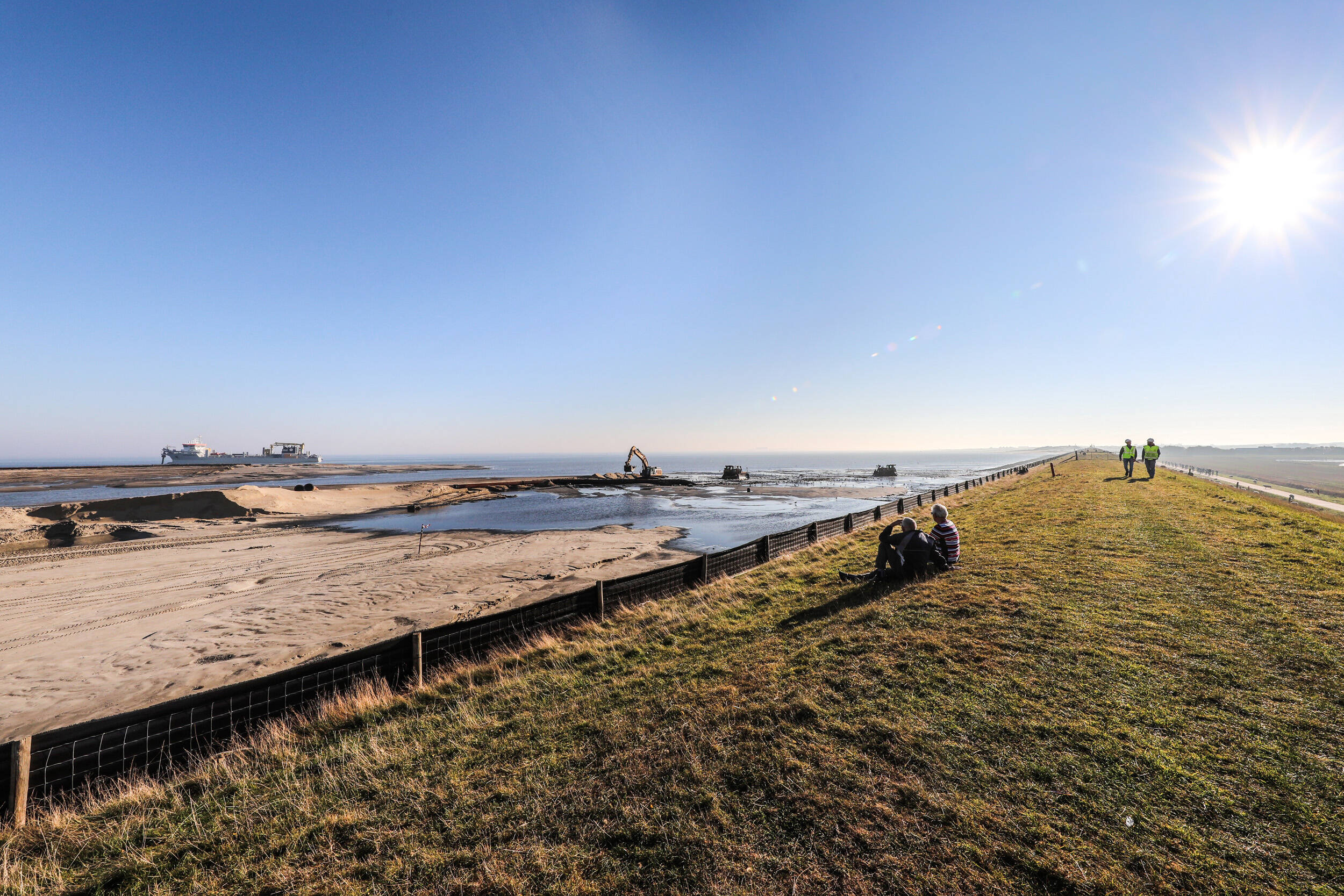

We are constantly reducing our ecological footprint
our Ambition

Focus areas and achievements
Tom Van Vooren,
R&D engineer
Bart Callens, PPS Manager
Michel Deruyck, Head of Energy Department
"The dredging industry produces only 0.1% of the total emission of global shipping traffic. Nevertheless, we are strongly committed to this issue."
"It is highly fascinating to investigate what factors can stimulate flat oyster farming"
United Project: first tests for erosion protection
Jan De Nul is part of a consortium of knowledge institutions and private companies that is investigating how to use the space of wind farms in the Belgian North Sea, in the most optimal and sustainable way (European project ‘United’). Specifically, we are participating in a research project focussing on nature restoration and aquaculture.
"Our task is to develop and install stone baskets at sea. We also supply the stones to fill the baskets and examine which type of stone is most favourable for oyster farming. A fascinating activity”, says Simon Petit of the Engineer Marine Environmental Department. "Thanks to our insights, we might one day be able to eat oysters grown on our wind farm. The knowledge that we gain from such a research project can be integrated into our projects."
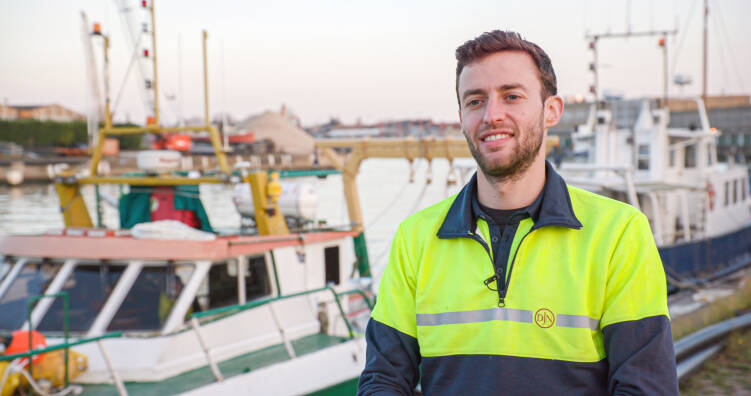

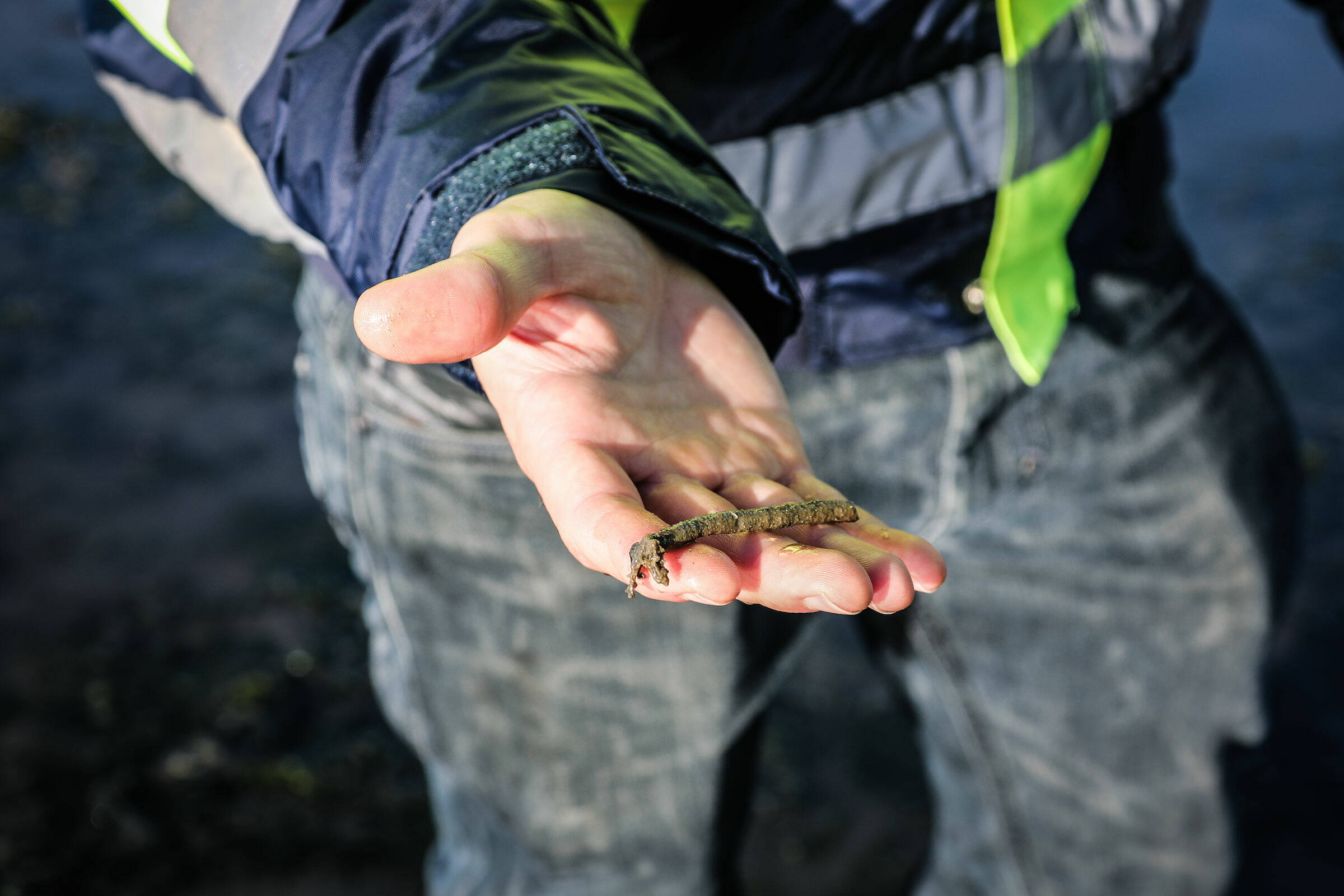
Circularity and waste management.
Treating contaminated soils and sediments, so that a large part can be reused, is the core activity of our Environment Division. In this way, the team pays a substantial contribution to the circular economy. Jan De Nul Group wants to increasingly explore and implement this circular concept throughout the entire company, thereby focussing on circular improvements in the management of sediments, soil, water and waste.
In addition, we put maximum effort into reducing the waste streams, both in our offices, on the sites and on board of our vessels. Our waste policy focuses on waste prevention, maximum reuse of waste, recovery of raw materials and recycling.
We pay special attention to plastic waste in our oceans, which represents a major threat to the rich marine biodiversity. We are investing in technological solutions to tackle specific forms of plastic pollution. In addition, we make all our employees aware of the problem of “plastic soup”. Worldwide, we organise beach clean-up actions together with local communities.
Datasheet Focus Area Circularity and Waste Management
Our Marine Environmental Department (MARED) monitors and controls all environmental aspects of Jan De Nul projects. Using innovative research, we look for solutions to preserve and, where possible, improve the natural environment around our projects.
Our constructions take the place of existing ecosystems and neighbouring ecosystems may also be affected during and after work activities. Our work therefore has an impact on the wider environment: the quality of the water, ecosystems and biodiversity.
Natuurlijke rijkdommen en ecosystemen.
Datasheet Focus Area Natural Resources and Ecosystems

"The Nul-O-Plastic is flexible and will also be deployed on other contaminated sites."
Nul-O-Plastic tackles historical pollution
Jan De Nul stimulates its employees to think innovatively and divergently. This is how the Nul-O-Plastic was born: a compact, flexible machine – a kind of hoover – that we use to clean up microplastics in a nature reserve in the port of Antwerp.
"When developing this machine, we took into account the vulnerability of a nature area. Thanks to its compactness and caterpillar tracks, the Nul-O-Plastic exerts little pressure on the ground, minimising the risk of causing damage”, explains R&D engineer Tom Van Vooren. "Port of Antwerp, ANB and Natuurpunt are already enthusiastic and are considering the possibility of using this machine for cleaning other sites in the area."
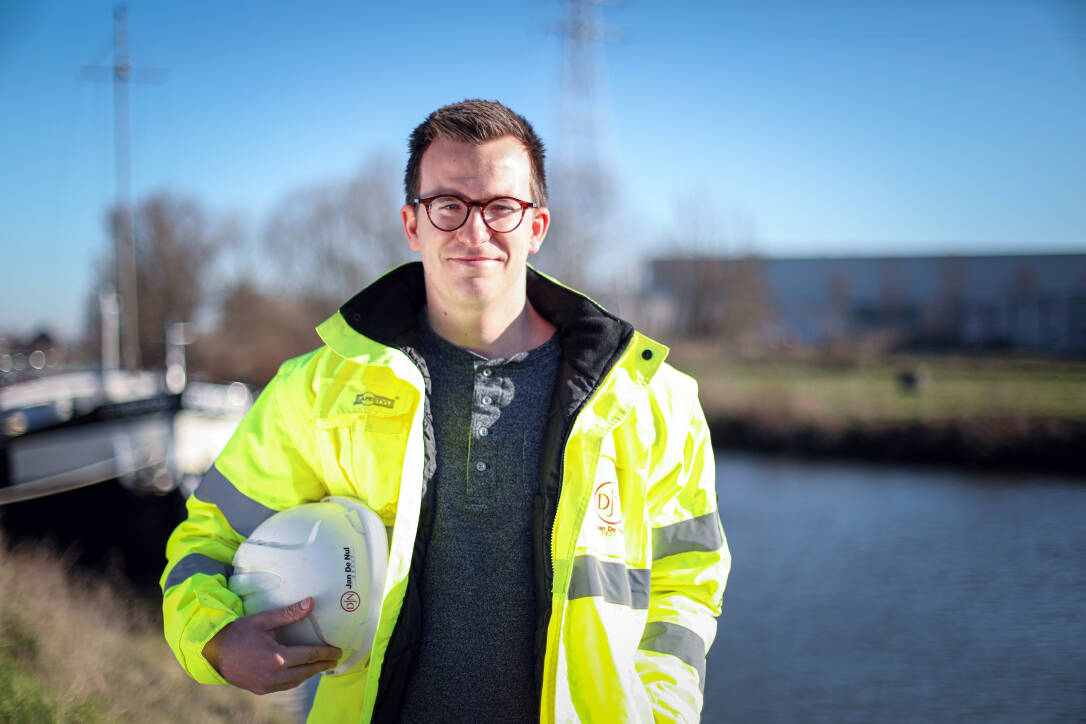
“By considering the whole lifecycle of a project, we can make circular design choices."
Innovating with circular building
By signing the Green Deal Circular Building, we emphasise our climate commitment, not only in words, but also in concrete actions. In this innovative learning network, we share practical experiences with our fellow competitors. Central to the re-use of maximum high-quality recycling materials is the focus on change-orientated construction methods, the optimum use of space with a view to extending the life span of buildings and materials.
“By considering the whole lifecycle of a project, we can make circular design choices", says Bart Callens, PPS Manager. "For example, we developed a circular design process for the tender for the new R4 ring road around Ghent. We want to minimise the energy consumption in this project and use sustainable materials."

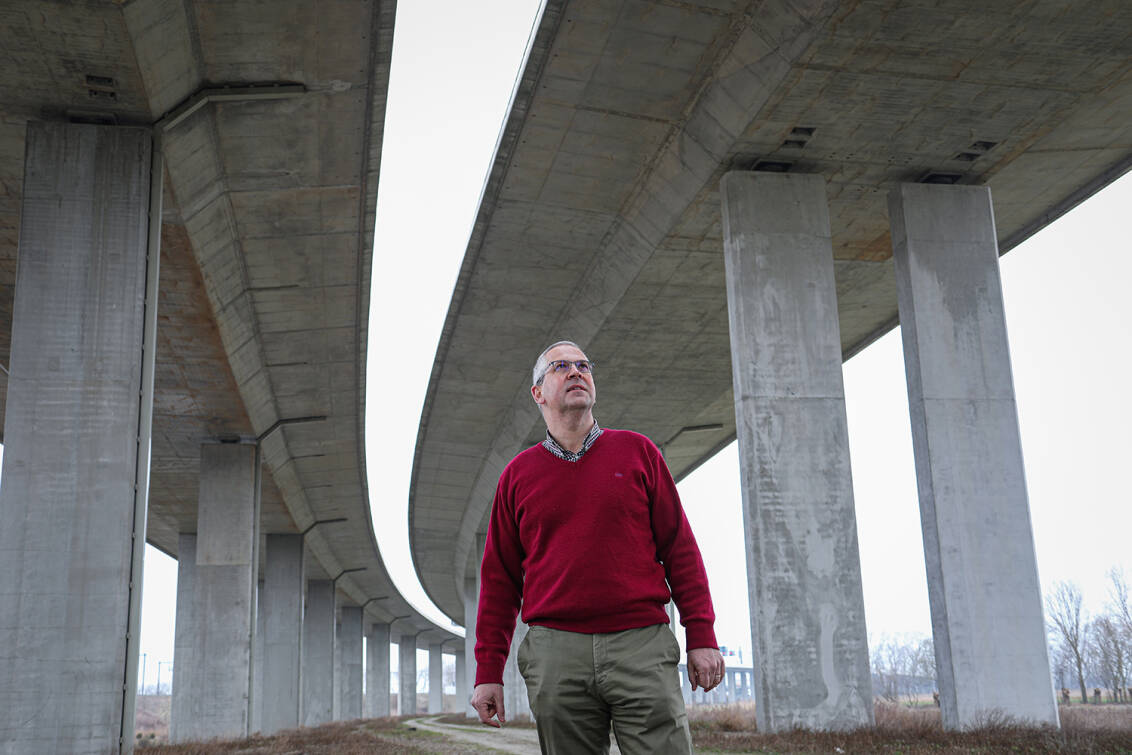
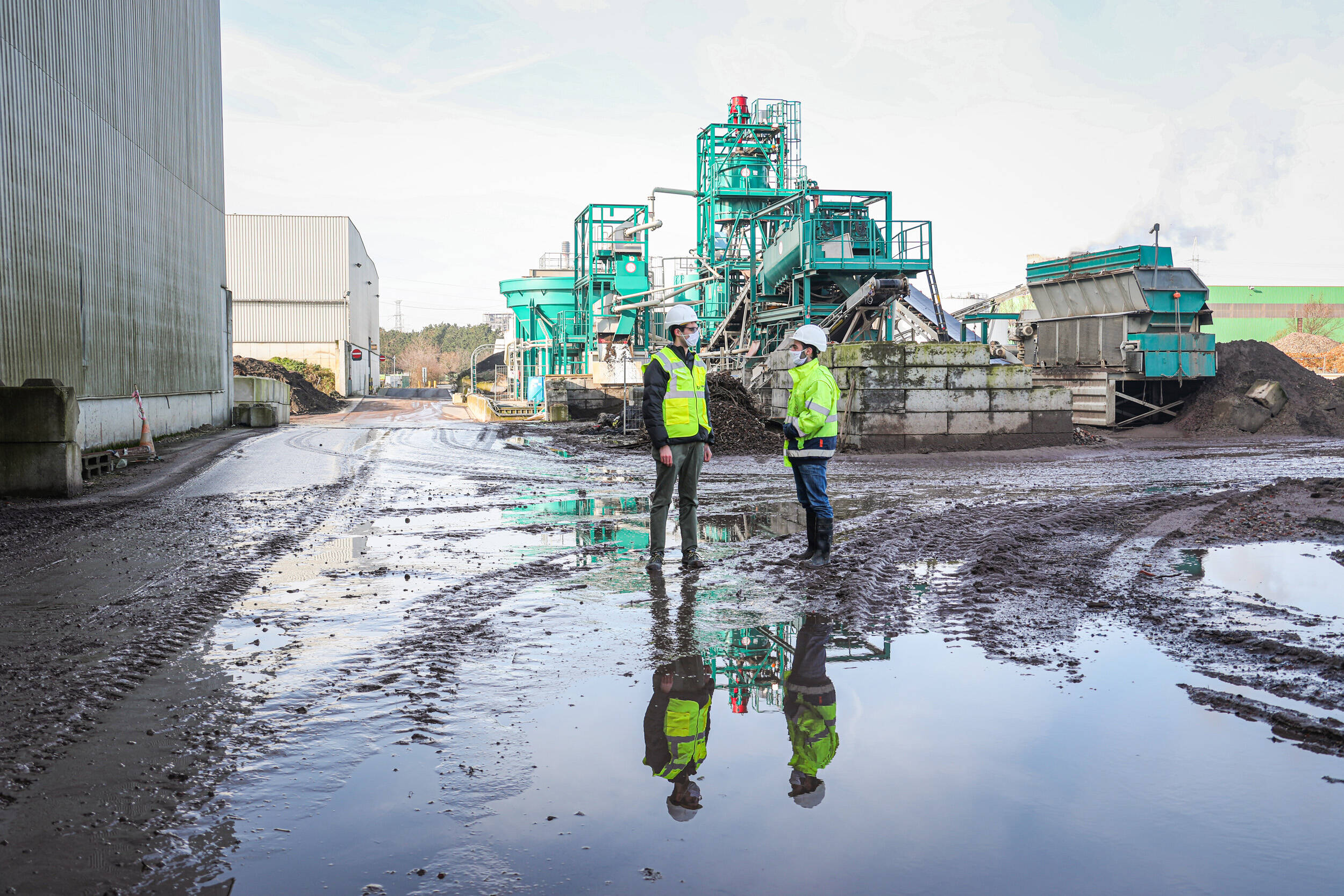
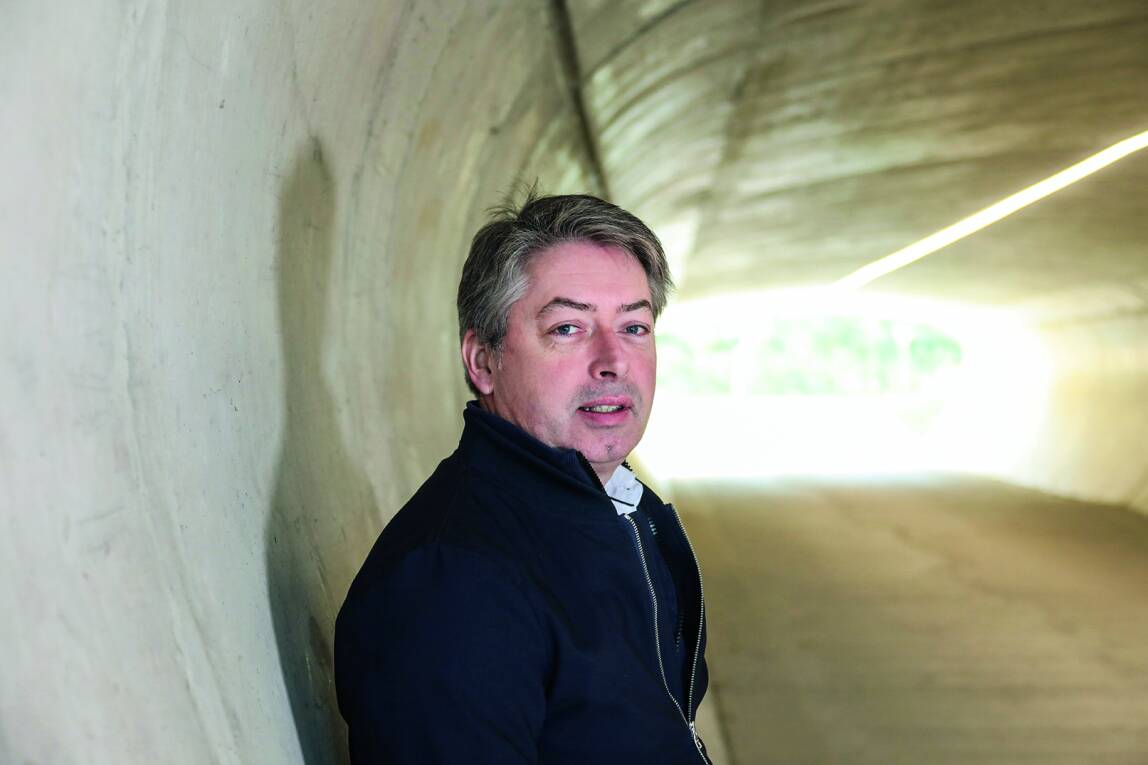
ULEv vessels: cleaner air, fewer emissions
Air pollution is one of the major hazards to public health. Marine works mainly take place along the coast and in the vicinity of ports and densely populated areas. It is therefore important to limit the emissions of our ships carrying out these works as much as possible.
"The dredging industry produces only 0.1% of the total emission of global shipping traffic. Nevertheless, we are strongly committed to this issue and do everything we can to safeguard the environment even more”, says Michel Deruyck, Head of Energy Department.
In order to reduce the emission of pollutants, Jan De Nul Group has been using Ultra Low Emission vessels (ULEv) since 2019. These vessels are equipped with a catalyst that renders nitrogen oxides harmless and with a catalytic soot filter blocking the finest particles.
Energy, emissions and climate.
Climate change is one of the biggest threats to our planet and society. Jan De Nul Group is committed to reducing its energy consumption and greenhouse gas emissions and to improving air quality. Step by step, we translate our advanced energy management into concrete initiatives.
For example, in all our Benelux offices and workshops we use 100% green electricity from a local source. We generate our own green energy using solar panels on the roofs of our company buildings and wind turbines on our Belgian sites.
The challenges in the field of energy, emissions and climate are a motor for innovation at Jan De Nul. Our engineers are always looking for innovative interventions to reduce our ecological footprint.
Datasheet Focus Area Energy, Emissions and Climate
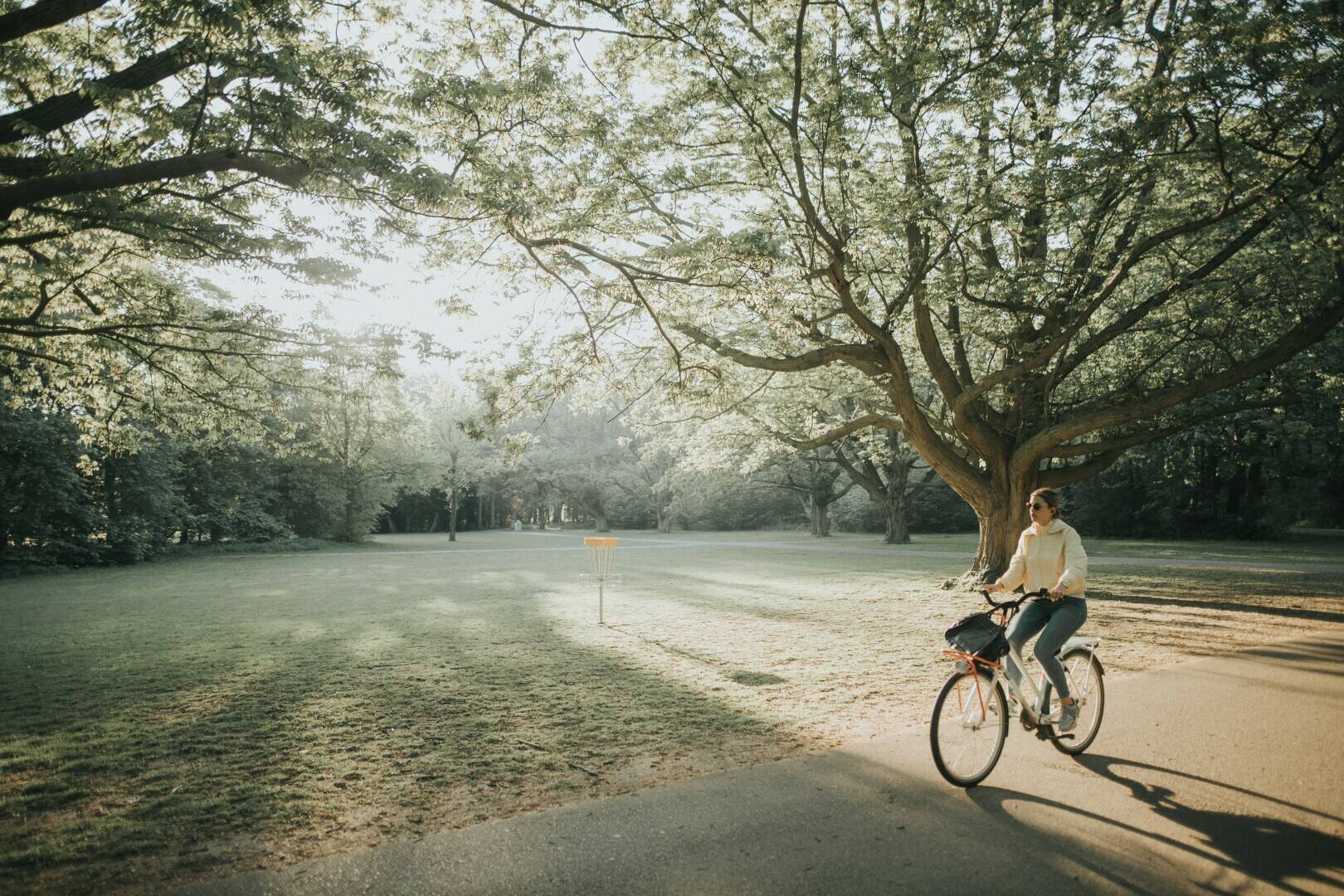
The health of our planet is under pressure. That is why we aim to minimise our environmental impact in all our activities. We are driven by respect for nature, our living environment and public health.
planet
